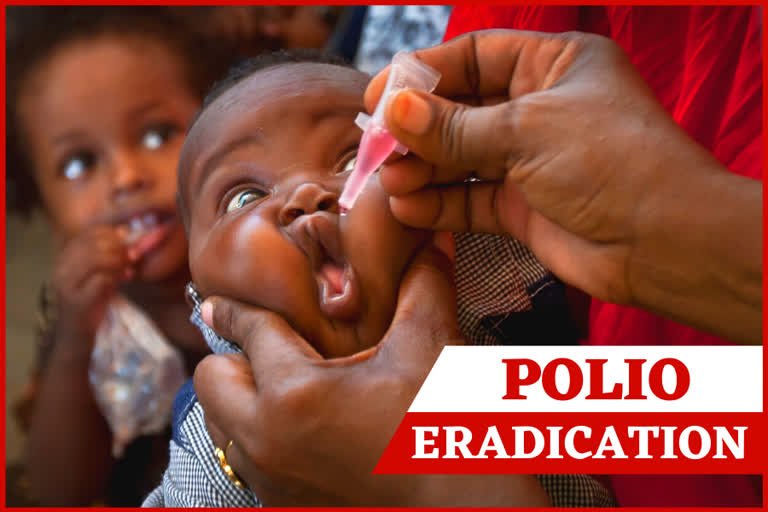Johannesburg: Health authorities on Tuesday declared the African continent free of the wild poliovirus after decades of effort, though cases of vaccine-derived polio are still sparking outbreaks of the paralyzing disease in more than a dozen countries.
Health authorities see the declaration as a rare glint of good news in Africa amid the coronavirus pandemic, an Ebola outbreak in western Congo and the persistent deadly challenges of malaria, HIV and tuberculosis.
Read also: WHO chief hails India's step to engage in polio surveillance network to fight COVID-19
"This is an incredible and emotional day," WHO Africa director Matshidiso Moeti said, but she urged vigilance as the coronavirus threatens vaccination and surveillance efforts.
The World Health Organization says this is just the second time a virus has been eradicated in Africa, after the elimination of smallpox four decades ago.
But sometimes patchy surveillance across the vast continent of 1.3 billion people raises the possibility that scattered cases of the wild poliovirus still remain, undetected.
The final push to combat the wild poliovirus focused largely on northern Nigeria, where the Boko Haram Islamic extremist group has carried out a deadly insurgency for more than a decade. Health workers at times carried out vaccinations on the margins of the insecurity, putting their lives at risk.
Africa's last reported case of the wild poliovirus was in Nigeria in 2016. The country a year earlier had been removed from the global list of polio-endemic nations, a step toward being declared polio-free, but new cases were then reported in children in the north — a stark example of the difficulties in combating the disease.
This new declaration doesn't mean Africa is polio-free. Cases remain of the so-called vaccine-derived polio virus, which is a rare mutated form of the weakened but live virus contained in the oral polio vaccine.
That mutated virus can spark crippling polio outbreaks, and 16 African countries are currently experiencing one: Angola, Benin, Burkina Faso, Cameroon, Central African Republic, Chad, Ivory Coast, Congo, Ethiopia, Guinea, Ghana, Mali, Niger, Nigeria, Togo and Zambia.
Health authorities have warned that the coronavirus pandemic has disrupted vaccination work in many countries across Africa, leaving more children vulnerable to infection.
In April, WHO and its partners reluctantly recommended a temporary halt to mass polio immunization campaigns, recognizing the move could lead to a resurgence of the disease. In May, they reported that 46 campaigns to vaccinate children against polio had been suspended in 38 countries, mostly in Africa, as a result of the coronavirus pandemic.
Eradicating polio requires more than 90% of children being immunized, typically in mass campaigns involving millions of health workers that would break social distancing guidelines needed to stop the spread of COVID-19.
Health officials had initially aimed to wipe out polio by 2000, a deadline repeatedly pushed back and missed. Even now in northeastern Nigeria, thousands of children remain out of reach of health workers carrying out vaccinations.
AP



